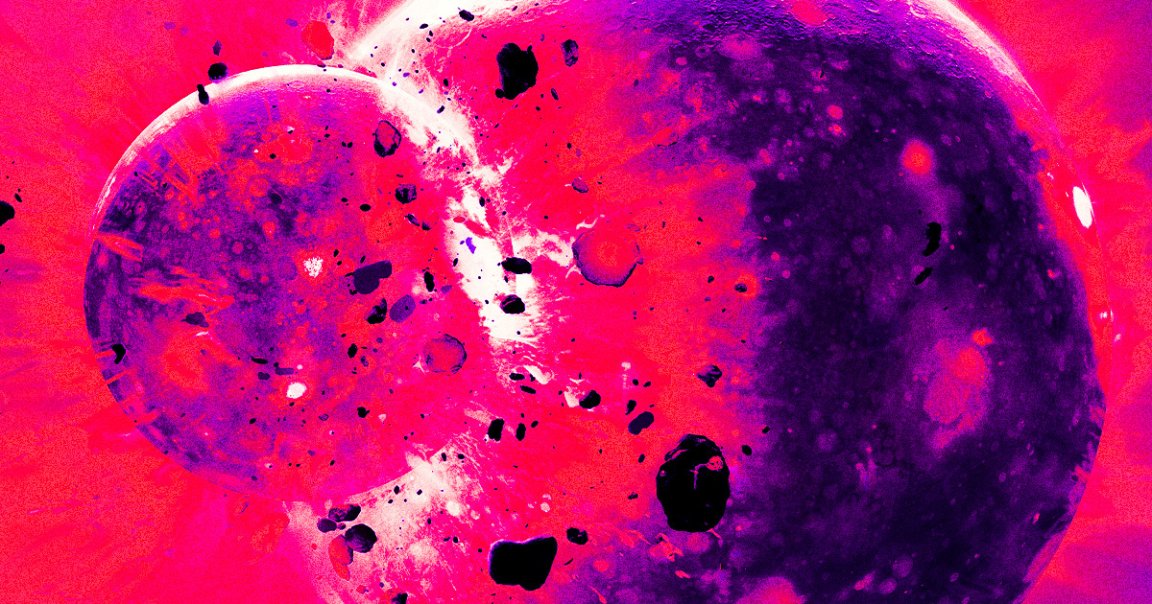
Paradox: Solved
Here’s a Fermi Paradox solution for you: killer moons are taking out extraterrestrials. We promise it’s not as ridiculous as it sounds.
According to a new study published in the journal Monthly Notices of the Royal Astronomical Sciences, as spotted by LiveScience, exomoons, or moons that revolve around an exoplanet outside our solar system, could be crashing into their hosts and wiping out any chances for life on a shockingly regular basis.
Here’s some background, using Earth as the closest-to-home analog: the Moon is slowly escaping Earth’s orbit, quite literally inching away at a rate of roughly 1.5 inches per year. Eventually, the Moon will be completely “unbound” from our planet, in some unimaginably distant future billions of years from now when the Sun has already exploded.
This, we presume, is the same process that will be shared by exomoons. But by using simulations, the study found that depending on how close the exoplanet is to the system’s star, the timeline could be drastically accelerated, making it possible for an unbound moon to come crashing back into its former host a mere billion years into the planet’s formation.
Either way, fast timeline or slow, the study concluded that an unbound moon eventually colliding with its parent planet is the “overwhelmingly most likely long-term outcome.”
SETI Setback
That’s not good news for potential alien worlds (or ours, for that matter), which is ironic, since moons may be an essential factor in fostering a livable climate in the first place.
“Moons are often considered helpful,” study author Brad Hansen, an astrophysicist at the University of California, told LiveScience, because they help stabilize a planet’s axis, allowing for stabler climates and seasons better suited for life.
So any planet that life crops up on in the universe will have a built-in, ticking time bomb that “may sterilize an otherwise habitable planet,” Hansen wrote, far sooner than when a host star can make short work of one.
“Not the best result in the search for extraterrestrial life, but worth knowing all the same,” Jonathan Brande, a University of Kansas astrophysicist who was not involved in the study, told LiveScience.
There’s just one small problem: no one has ever actually observed an exomoon. If they’re out there, they’re almost impossible to detect, though there are strong detection candidates.
Nonetheless, scientists are still confident that they exist since there’s no shortage of moons in our solar system, which means bloodthirsty moons may well be dooming alien worlds across the entire cosmos.
More on space: James Webb Takes Breathtaking Image of a Titanic Star That’s About to Explode